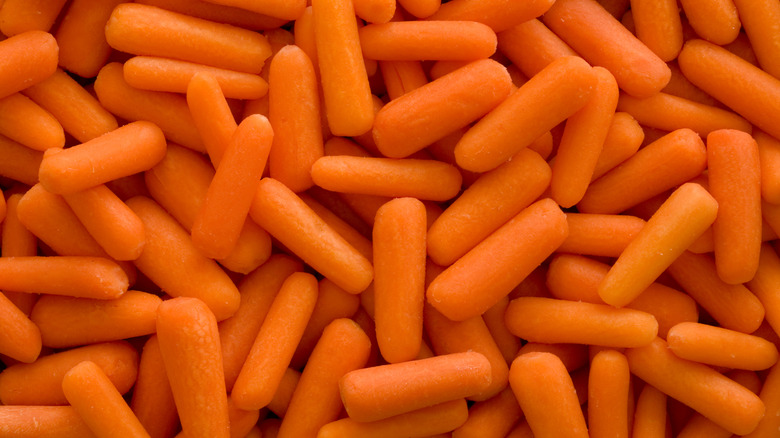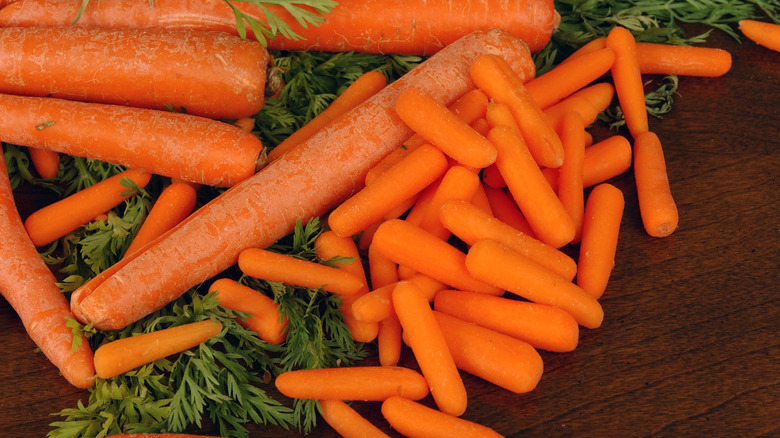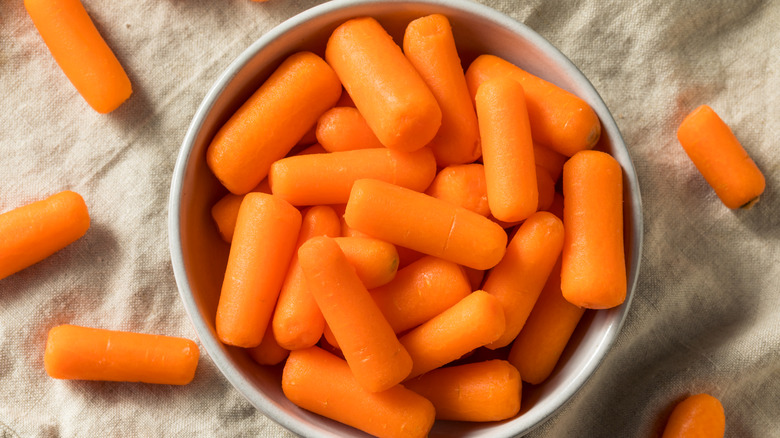What Is That White Film All Over Baby Carrots?
Just like the story of the ugly duckling, there's always at least one funny-looking little baby carrot no one wants to touch. An unappealing little carrot with a mysterious white coating on it might be completely safe to eat, but it is definitely not as appetizing as a well-washed and chopped carrot stick.
Is it genetics that makes some carrots develop that odd white film, or does that white stuff mean the carrot is past its expiration and we're all actually ingesting a fungus? Does it mean you're not storing your carrots properly? Or, could it be something with a cute name like carrot blush? Yes, actually that's exactly what it is. Carrot blush is what many call the white film that develops on baby carrots.
This must be why Bugs Bunny is always walking around with a full-sized carrot instead of holding a little Ziplock baggie filled with baby carrots. The iconic bunny might know what's really up, (Doc). But rather than rely on the wisdom of a cartoon character it might be better, for the sake of snack time, for us to figure out what's really going on with baby carrots. These veggie snacks can be perfectly safe to eat despite their visual flaws.
Why baby carrots get a white film
Let's get one thing straight before we start discussing why baby carrots start to look old and dried out with a white film over them. Baby carrots are not actually babies waiting to grow into adult-sized carrots.
The bags of baby carrots you purchase at the grocery store are manufactured in that they are cut from larger full-sized carrots using a machine. The machine cuts them into uniform 2-inch pieces, then the cuts' edges are peeled, smoothed out, and polished. This process is part of the reason the carrots develop a white film.
The white film is known as carrot blush, and it appears when the carrot's surface has been exposed to the atmosphere and loses moisture. Think of the ashy whiteness human skin takes on when it's in need of moisture or a when person's lips get dry in the winter; baby carrots react in a similar way.
Is the white stuff on baby carrots safe to eat?
Since baby carrots are actually just 2-inch cuts of full-sized carrots, you may be wondering why they are more susceptible to developing that white film. It's because, much like real babies, baby carrots are more vulnerable to their environment than their full-grown counterparts are.
Full-grown carrots are generally not peeled or cut until they're going to be used, which means they still have an outer layer of skin protection that baby carrots don't have. The white carrot blush might make it seem like your baby carrots are starting to rot, but looks can be deceiving. Those dried carrots are still safe to eat.
You can easily get rid of this visible sign of dehydration by washing your carrots or soaking them in water for some time (soaking can help save old, squishy carrots too). Don't worry, Doc, your baby carrots aren't rotting away, they're just extra thirsty little veggies.


